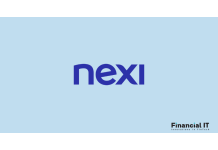New Report: Pay by Bank Now ‘Table Stakes’ for Banks...
- 07.11.2025 12:25 pm
Adyen Expands In-Person Payments Offering With Launch...
- 07.11.2025 11:05 am
Klarna and the German Sparkasse Finanzgruppe Introduce...
- 07.11.2025 09:05 am
MoneyGram Partners With Oscilar to Build the Future of...
- 07.11.2025 09:05 am
Nuvei Expands Payout Offering With Visa Direct for...
- 06.11.2025 02:25 pm
Modernising B2B Payment Rails Could Unlock £55 Billion...
- 06.11.2025 12:25 pm
True Potential Rolls Out Payit™ by NatWest Offering...
- 06.11.2025 11:15 am
Stripe and NEC to Provide Face Recognition Payment...
- 06.11.2025 06:55 am
Click to Pay Reduces Abandonment Rates for Ecommpay...
- 05.11.2025 02:05 pm
Worldline and Deliverect Expand Partnership to Power...
- 05.11.2025 10:15 am
PPRO Enables Wero for CTS EVENTIM, Marking the Debut...
- 05.11.2025 10:10 am
Nexi and Zucchetti Expand Partnership to Provide...
- 04.11.2025 02:55 pm






















